Origin Stories: Do we need them?
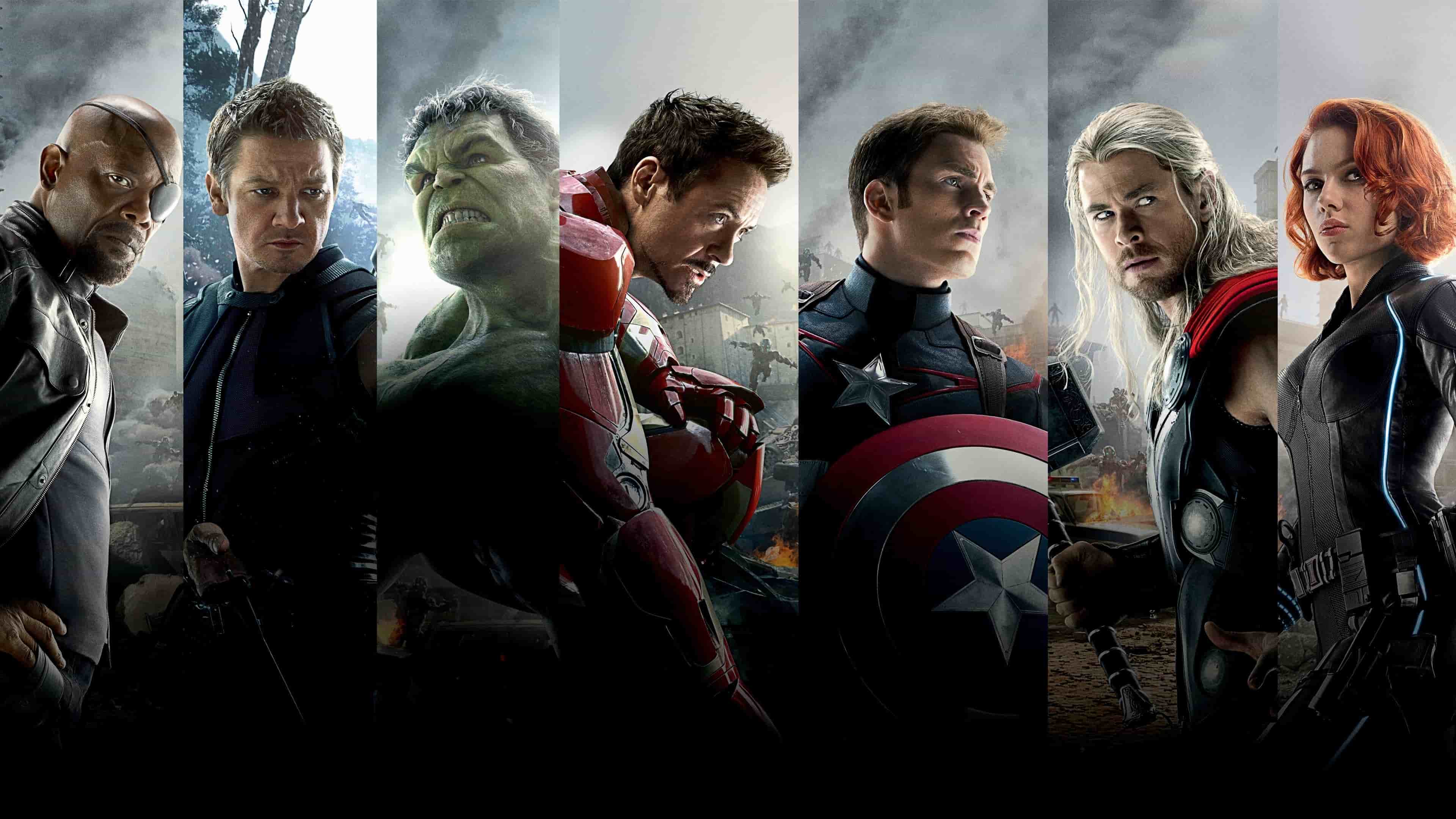
With so many superhero movies coming out and Hollywood’s love of reboots, the value of origin stories has become an unavoidable debate, often focused on the execution of particular storylines rather than the role of origin stories more broadly and the information they impart. Many of these debates center around issues of audience fatigue with repeated storylines and the audience’s desire not to know everything. What these arguments tend to overlook is the value of what we do know and how it can be used to tell better stories and keep us watching.
Why We No Longer Need Origin Stories
We no longer need origin stories. That is the sentiment of many committed fans who have rejoiced at the new structure of recent films such as Spiderman: Homecoming (2017) and Star Wars: The Force Awakens (2015). Writing for NPR’s Monkey See blog , Glen Welden summarized the sentiment, “Give them their advantages from the get-go. Fine. We get it.” Praising the lack of origin story in the latest Spiderman installment, Welden admits that he once (back in 2010) believed that a universal theory of hero films depended on origin stories. He wrote:
“The origin story is what drives and shapes a superhero franchise, because it grounds all that third act (and sequel) CGI action in the first act world where characters have dreams, and relationships, and have lived lives. Because in that life, something magical happened — this guy got amazing powers!”
Welden supported this claim at the time by pointing out that, barring a few exceptions, almost every superhero franchise loses steam after its origin stories. The result: sequels are rarely as good or better than the first film.
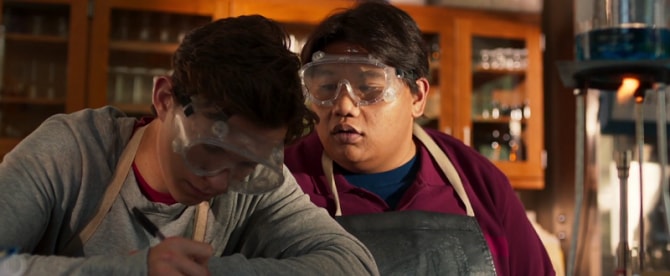
For Welden, this “unified theory” of the superhero film changed drastically with the arrival of Spiderman: Homecoming. It was a good superhero film with an obvious lack of origin story, and Welden needed to step back and examine his theory. Upon re-examining the superhero film genre he found that it was not the origin story which drove viewers’ interest and empathy, but the training montage that follows.
To win our empathy and interest, it’s not enough for a superhero to start out like us. We have to see him strive. And struggle. And fail. And start over.
Spiderman in Spiderman: Homecoming certainly struggles. He struggles with waiting for Tony Stark to call him back. He struggles with hiding his identity from his aunt and friends. He struggles with winning over the girl. And he struggles with his new tricked out super suit (which leads to a quick training montage while trapped in a top secret storage facility). That’s a lot of struggle and no origin story.
Thus Welden’s new unified theory and final advice to Hollywood screenwriters: leave the origin stories behind and show characters working hard and earning their powers through failure.
The Force Awakens is a great example of this new theory in action. We don’t know much about the past of our new heroes or how they managed to get their unique skill sets. Rey just has the ability to pilot starships, use the force, and fight with a light saber. Poe Dameron is the best pilot and a hero of the resistance, but we don’t know where he learned these skills. Finn is the only member of his cohort to defect from the First Order. Why?
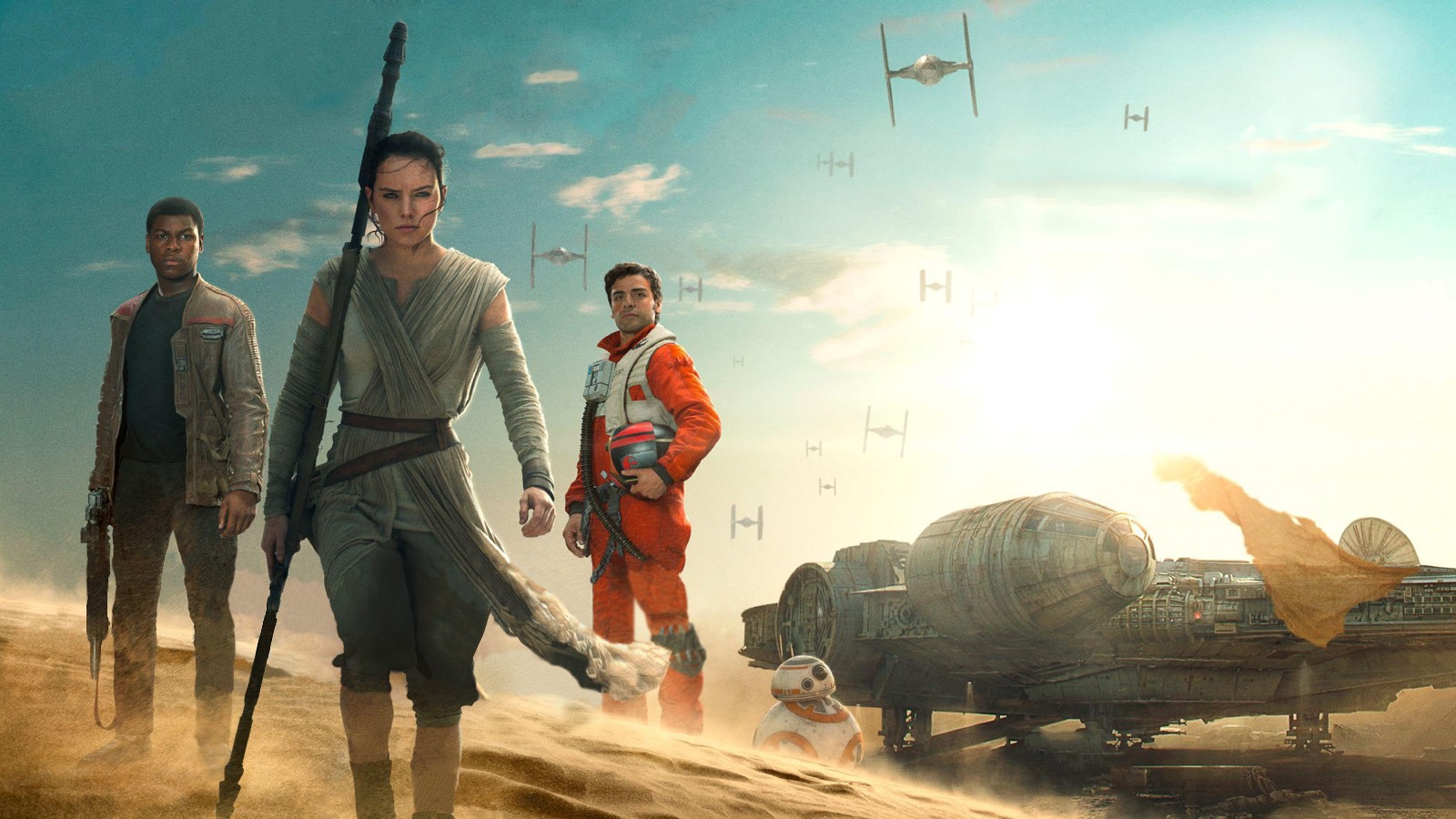
In each case, key components of the character’s origin story have been left out but not their struggle to earn those distinctions. Rey first leaves the only planet she has known and then has to survive an interrogation by Kylo Ren. Poe has to make a crash landing and “die” before he can make the attack run on the new Star Killer Base. And Finn struggles with learning to make decisions and deciding what he really wants in life before finding the courage to stop running and face the First Order.
We No Longer Need the Re-telling of Origin Stories
But the new unified theory misses the mark. It is not that the audience desires to see heroes struggle instead of seeing their origins; rather the audience wants the information we know and don’t know about the character to drive the story. In other words: the audience desires good storytelling.
We don’t need necessarily to see the origin story played out because “We’ve, all of us, been there.” But that is precisely the point. We as a communal audience have all already learned that origin information and can now use it to enhance our experience and tell new stories–stories that would not be possible without knowledge beyond the immediate struggle of the characters.
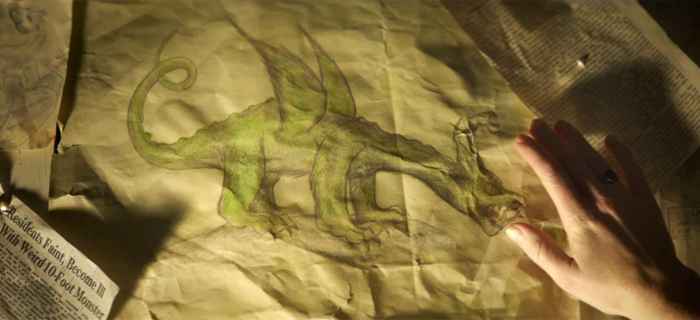
The progression of origin story knowledge is perhaps best exemplified by the character Meacham in Pete’s Dragon (2016). At the beginning of the film, Meacham spends his time telling anyone who will listen about his run-in with the Millhaven dragon. After the entire community witnesses the existence of the dragon over the course of the film, Meacham sums up the situation.
“No one ever saw that dragon again. And I never told another tale about it. I didn’t have to.”
He didn’t have to tell the story of how the dragon was discovered anymore, because everyone knew the dragon was real. In the same way, audiences today don’t need the re-telling of Spiderman’s origin story or a Star Wars universe history lesson. However, to get to this point, both the community of Millhaven and the seasoned movie goer of today had to experience those events and add them to a collective psyche. The stories had to become the “static hiss of a kind of narrative background radiation that now pervades the culture” (Welden).
Without the information provided by origin stories, these new proposed legends of struggle lack something we still desire: to work for ourselves based on what we know.
An Evolved Sense of the Origin Story
It is at this point that a broader perspective on the role of origin information must be taken in order to understand its importance beyond the implications of specific storylines or even isolated genres. We may no longer need origin stories, or at the very least no longer need the re-telling of them, but this has not eliminated the need for origin information.
What people know (knowledge) has two main functions in stories 1) to build suspense and 2) drive mystery.
Suspense draws on what the audience already knows in order to build expectation for a certain result. Often described as the master of suspense, Alfred Hitchcock presented the idea of suspense as follows:
“If the audience does know, if they have been told all the secrets that the characters do not know, they’ll work like the devil for you because they know what fate is facing the poor actors. That is what is known as ‘playing God.’ That is suspense”
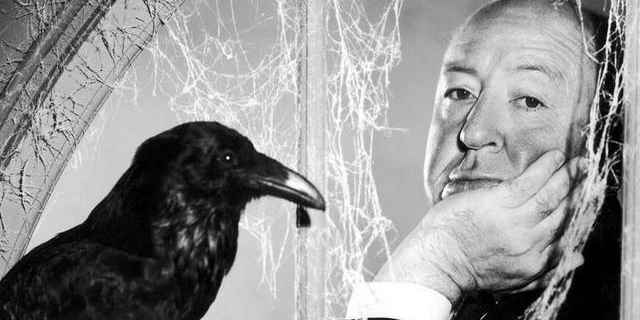
Hitchcock’s films lean heavily on suspense. Whether it is the knowledge that Thorwald has returned home and Lisa is in danger in the film Rearwindow, knowledge that there is a dead man in the crate in Rope, or working to seed misinformation through a false narrative at the beginning of Stagefright, it is always what the audience knows (or thinks they know) that drives the story.
Mystery on the other hand is playing up what the audience doesn’t know. A foil to suspense, “mystery” is where the audience’s “work” happens.
We may know the answer, but how do we get there? Never mind that we know the hero will succeed. We want to know: How will the hero succeed?
Star Wars: The Force Awakens, as discussed above, is perhaps the perfect example of mysterious character origins and follows a well-established pattern in JJ Abrams’ work such as Lost. As Abrams put it:
…then there’s the thing of mystery in terms of imagination, [withholding information] intentionally is much more engaging….you love it because you don’t [know the truth].
However, none of the tantalizing mystery would be worth the dedicated fans’ efforts without the suspense that comes with knowing about the Star Wars world. After nine feature films, two animated tv shows, countless books & graphic novels, toys, and games, we all know the politics and the worlds that are at stake in every move the characters make. Rey’s immediate past may still be an important mystery for us to solve, but without the knowledge of why that mystery matters it really loses its potency. (For a fuller exploration check out Star Wars: Who is Rey (And Why Do We Care)?)
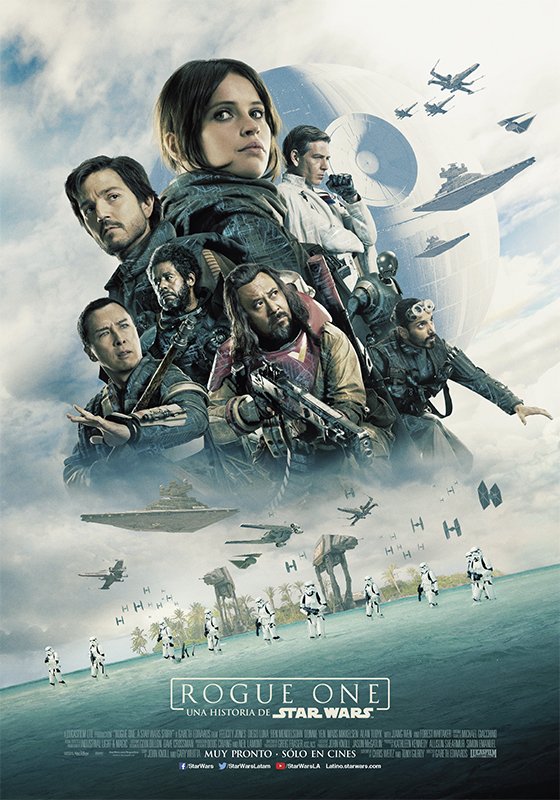
Aside: The Star Wars story of Rogue One is another (perhaps more clear cut) example of the balance between mystery and suspense. We all know that many rebels died to get the stolen plans seen at the beginning of A New Hope. While we watch Rogue One we know that the plans will be retrieved and that our favorite characters are more than likely to die, but we all watched anyway, because we still wanted to know how. Our knowledge only made the value of the mystery greater.
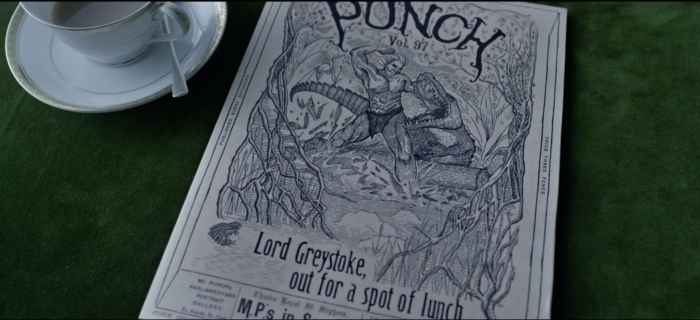
A great example of using communal knowledge of an origin story to build suspense can be found in The Legend of Tarzan (2016). While the director David Yates provides some flashbacks he doesn’t bother with giving us the full origin story. After more than 100 years (and around 50 films) of retelling the Tarzan story, he has become a legend (pun intended). Also within the world of the film, Tarzan has become a legend. This fact is played up in a scene where a printed publication tells the story of Tarzan, the reactions of the children to seeing his hands, and his greeting with songs telling of his past deeds upon his return to Africa.
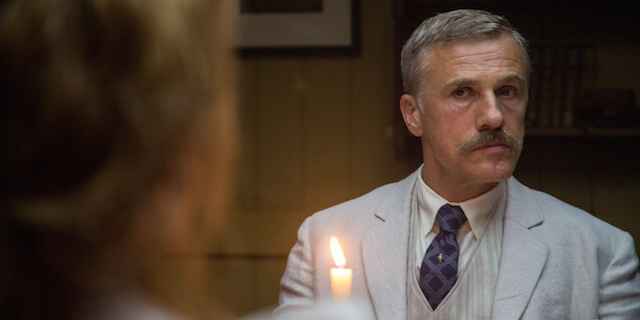
These references come to a head after the film’s villain Leon Rom captures Lady Clayton (Jane). In a self-referential moment, Rom declares “He’s Tarzan. You’re Jane. He’ll come for you.” In that one line, Rom says what everyone already knows, bringing the few stragglers up to speed and setting the audience up to wonder not if but how Tarzan will achieve his goal, and then to enjoy the struggle Tarzan goes through to be re-united with Jane.
The elements of mystery and suspense are what drive us to watch a film again and again. With each viewing we continue to search for new information and then apply the information we already know. What kind of stories could we tell if we finally hung up the mantle of origin stories and embraced the role of audience knowledge? What new stories await our favorite characters as we move into this new era of storytelling?
What do you think? Leave a comment.











Guardians of the Galaxy pretty much proved you don’t need a real “origin” story to work. While yes, it is technically an origin story of how they became a team… We aren’t subjected to 30/40 minutes of backstory for each character. We literally get like two minutes of Peter as a child (which honestly packs a large punch later when we find out the mix tape is from his mother and the name Star Lord is also from her and his entire emphasis on it is related to that memory) but that is it. We don’t see Rocket being made, we don’t see him meeting Groot, we see nothing of Drax’s backstory outside of being told how his family died… Because they’ve been done so much in previous media that we get it. Honestly think that’s why the movie worked so well, it didn’t treat the audience like a bunch of idiots.
Great points! I wish I’d thought of some of those to include in my analysis!
The origin stories in GOTG were kinda weaved into the actual plot of the film in such a way that you didn’t even realize it – rocket and groot are bounty hunters looking for bounties, gamora is shown with ronan and thanos so we have that connection, then in the prison we have drax who is also connected to ronan by way of his families murder, and then shortly after that we learn that thanos did pretty much the same thing to gamora, and yet during all of this ‘orgin/backstory’ stuff, the plot is advancing as the team comes together. then there’s seemingly innocuous dialogue between quill and yondu, which tells us what quill has been up to the past 20 years and what made him the man he is today, being trained and brought up by the Ravagers who go looking for things to sell or maybe even hunt bounties themselves, while also flying cool ships etc.
Actually when I think about it, the entire movie is the guardians origin story, isn’t it? but it doesn’t feel at all like an origin story movie when you watch it. damn such a good movie. I think i’ll rewatch it again later today.
Every time I watch the scene at the end “peter, grab my hand!” and we see his mom and then quill crying, I can’t help but tear up myself. for a comedy/action/comic-book movie to have that effect is pretty awesome, imho.
When a character is profitable and story potential going forward is limited and they want an excuse to sell tickets/books.
People want to know, “how things got to be that way”.
I only watch origin superhero movies. All others are to extreme for my taste.
You’re certainly a rich boy.
Personally I prefer a heaping spoonful of mystery.
Most genre heroes end up doing the same thing over and over again. Solve the problem or fight the monster of the week or face the same ensemble of recurring bad guys, save the world/galaxy, rinse and repeat.
The Indiana Jones films didn’t bother with his origin until the final film, and even then, it was over by the time the opening credits rolled. The closest James Bond got to an origin story was Casino Royale, and even that was after over 40 years of Bond films.
Origins are interesting, but not nearly as interesting as Hollywood seems to think.
Umm….Young Indiana Jones Chronicles?
Sometimes less is more, or rather less is better. not sure Hollywood gets that, or that not everything needs to be explained or have an explanation. I think that may be why so many directors (not all) dislike magic.
Some reboots need a new origin story.
The origin story is about leaving the life of doing laundry, getting groceries, having take out, and going in to work the next day. It’s injecting significance into the characters life that we can vicariously embrace in our own lives that don’t take an origin story moment turn.
Is this unique to film and television? Hell no. Comic writers have been rewriting, re-examining, and reinterpreting character origins for decades. I think part of this, especially with characters created decades ago that have gone through countless adaptations, retcons, and reimaginings, is the desire of the author(s) to put their own stamp on the character, to take some kind of ownership of it. To stage the definitive version of the character’s origin.
I tend to like my heroes with a bit of experience already under their belt—but I think I understand where the fascination comes from.
Origin stories provide the roadmap of how people like us become people like them. I believe deep down it speaks to our most basic “that could happen to me” desires.
The more fantastic the tail, we look for some way to ground the character … to humanize them or, as you say, empathize with them. Another reason for the origin story, at least in my opinion, is a byproduct of these properties being reboots. Such origin stories are used to set up how the newest iteration of said hero’s story differs from what has gone before.
The differences between the origin of Spider-Man in the Raimi films and the recent Amazing Spider-Man are a prime example. Each screenwriter and director put their own spin on the source material.
It is interesting how cyclical Hollywood can be. The issue of the origin story film is strongly identified in the current zeitgeist, but soon we will be back around to another strong trend. This is the difficultly of having commerce drive art when studios are only interested in creating what already is a “sure thing.” I agree with a lot of your discussion, and there are strong pros and cons to the origin story, but I agree that mostly it comes down to the fact that good storytelling is just that – as when it is good we stop caring about the cliches, or the break away themes and become engaged – and it simply is a wonderful cinematic experience.
Origin stories are fine, but when they’re told again and again and again and again instead of advancing the story, spare me. The need to incessantly reiterate key moments in a franchise is what drove me away from most comics in the 90s.
The worst offenders are horror movie origin stories. Not once have I seen a movie featuring a chainsaw wielding cannibal hillbilly and thought to myself, “I wonder if his childhood was unhappy. What motivates him?”
Hollywood don’t believe an audience can truly understand why a man would dress as a flying mouse and bootstomp criminals unless we flashback to his mother’s pearls falling to the cold wet pavement, beautiful in it’s monochromatic starkness but for a single, glistening drop of crimson.
I think the issue of origin stories revolves around the need to win the audience’s hearts. It’s a strong way to give them a relationship with the character and invest them in his or her mission and motives.
Personally, I thought that Homecoming was a little less gripping than Spider-Man (2002) due to the viewer not getting to be there for the beginning of his story. The MCU just did a good job of working around this (with two other film renditions of the story having already tilled and seeded that ground and drained it of nutrients, they had to). With Civil War, they got straight to the “why,” to the character’s sense of responsibility, even if we didn’t get to see Uncle Ben instill that in him. Also, they didn’t make the mistake of establishing Parker as fully-fledged and settled in his work. He was recruited as a dumpster-diving kid vigilante in a homemade suit that barely resembled his classic look before Stark steps in, takes him on as little more than a sidekick on a single mission, tells him “You’ve done enough,” and sends him home. This made Homecoming not simply a movie about Spider-Man overcoming the latest threat, but also still about Peter Parker becoming a hero. And while we don’t get to see him pre-spider bite, the difference is still visible in the double life he still has to maintain and the impact of being told to give it up by Stark further in the film. I don’t think that Homecoming is a sufficient example that origin stories are obsolete because it largely did much of the same thing in a bit of a different way, and out of necessity more than artistic preference.
With Star Wars, Rey’s story, like Luke’s, is not lacking a backstory but simply teases it and gives it bit by bit rather than starting with it. Even ignoring the impact of the hint that she’s on Jakku because she’s waiting for someone, who, it turns out, voluntarily left her there as a child, her role in the movie’s present is its own origin story. She goes from being an obscure scavenger living day-to-day to being possibly the First Order’s greatest threat as she discovers herself. Finn starts being just another slave soldier but gains a name, a friend (whose seeming loss shapes Finn’s decisions for the better part of the film) and a mission. Poe Dameron may not have an origin given to explain his decisions, but he’s not a protagonist, so the story doesn’t follow him very much anyway.
Nobody actually wants to follow a story where the main characters simply are who they are from start to finish. There will always be at least one main character who reels the audience in by at least having either a mystery behind them or something they are still becoming in front of them. Character development is an essential part of an audience’s investment. Without it, many won’t care at all, and even those who do will tend to be lukewarm and feel that something is missing.
Also, even without seeing mystery as just another way of telling a character’s origin, if that became the approach all films took in “a new age of storytelling,” how long would it be before that became trite?
I don’t need an origin story. Case in point “LOST.”
The term “origin story” to some, feels equivalent to “backstory dump.” Luckily, that’s not always the case! I’m always pleased to see origin stories written well.
I understand the purpose of an origin story. However, perhaps Hollywood, especially the superhero genre, is actually hurting itself but constantly prioritizing the past instead of focusing on the present and future of these films and series.
I imagine it would also help grow and diversify the superhero universe by detailing new story arcs.
Origin stories are quite a debated topics as most people seem to argue whether if it’s needed or not. Most of us my points were said by you, thus I’ll just give a little bit of my opinion.
Origin stories although aren’t needed, are just plain fun to have especially if you have a well constructed and well developed character, as not only will this add more charisma towards the character and also increases its appeal towards them, it’s just generally dumb fun to see the origins of where your character come from.
It totally depends on the history of the character and his/her popularity in society.
I believe that the debating over the necessity of the origin story isn’t focusing on the real problem at hand: the oversaturation of hero movies in Hollywood. I believe that origin stories are important; however, they become less and less important when the gap between different adaptation lessens. For example. I think that it’s ridiculous how fast a Batman movie was made after the Nolan trilogy was over. Instead of repeatedly pumping out the same hero movies, perhaps Hollywood could try to branch out more. To illustrate, I wouldn’t mind a movie on heroes like Martian Manhunter, Zatanna, and Night Wing.
I absolutely agree with what you’re saying. Origin stories aren’t overall necessary, but they can be compelling, rewarding, and add depth for the audience through good storytelling…just like any story. It’s about that mix of mystery with what we know. But mainly, it’s about allowing the audience to develop and emotional attachment. I’m creating a character, they can’t coast through the story. They must have the worst happen to them and be able to overcome it. We have to see them struggle, because we struggle. It’s human.
Very well-written. Looking forward to reading more of your work.
This is a very strong argument that I can definitely get behind. I think that by drawing a connection between the functions of suspense and mystery to the idea of an origin story is a very unique and smart way to analyze this issue. Very insightful!
Very well-written argument. Collective knowledge, mystery, and suspense are all very important elements to this question of origin stories, as well as Welden’s different theories.
I think in some cases, the whole discussion about mystery, suspense, and giving/withholding knowledge, can actually justify those “unnecessary” origin stories, taking into account different audiences and circles of “communal knowledge.” While the superhero franchise is very popular and many fans are well-versed in the original comics, not every viewer has that knowledge of what the origin story is… Thus, Hollywood tries to create its own demand for suspense, by showing where a superhero ends up in one movie, and enticing audiences with how they got there in another movie. I’m not saying it’s the most artistic way of creating films (it’s very consumerist and appeals to audiences with the shortest attention span), but it’s legitimate.
I think origin stories are fickle. In some instances they work and are sought after. And in other genres, one can get away with out explaining the whole picture. It depends and knowing when to give answers is important as a creator.
While people do complain that superhero movies are kinda the same thing over and over again, it’s still important to know their origin stories in their own movies. It’s annoying, but it’s still very essential.
If you’re looking for a film that broadcasts both suspense and mystery then I’d recommend Memento.
One of the best things about Spiderman: Homecoming was the lack of origin story. I think that’s partly because Spiderman has been done and re-done three times in 15 years and superhero fans are crystal clear as to what the story is.
Great topic!
For decades, the formula has been the same. The origin story is the first movie in a series of movies about a superhero. Very seldom is there a superhero movie that is the first in a series where an origin story is not the driving force behind the plot. For most average viewers, as in those who have not read the comics or learned the backstory to a character, this can be helpful. It provides context and makes the movie more enjoyable. I see no problem with this approach. However, it makes departures from this formula such as “Hancock” “The Incredibles” stand out. I think that more movies should stray from the origin story at least for the first in the series, but I also think that abandoning it entirely could mead to less enjoyable viewing experiences for the mainstream audience.
I completely agree! The fact that there are so many movie remakes, it removes the need to spend half an hour to an hour giving the audience an origin of the character. Of course, new ideas and characters that have yet to be shown deserve a back story. With this being said, as the essay states, it would be just as effective to show flashbacks or splices of life instead of a full origin.
Great Job!
I’ve noticed I’ve kind’ve grown bored with origin stories myself. It’s almost like a misplaced, lengthy character description in first person, y’know? Looking in the mirror . . . noticing how plain and unremarkable you are . . . but here’s three pages about my mousy brown hair and how I always struggle with it. Kinda like that. I think there are definitely better, more interesting ways to weave an origin story into a story. And you’ve pointed out some great examples of where we’ve already seen that happen! I think it may call for audiences to pay closer attention, but I personally love when a character’s backstory is a mystery.
Great analysis of origin stories. I love the concept that we, as readers/viewers, have begun to evolve beyond the origin story and have begun to create new narrative technics to get the same information across.